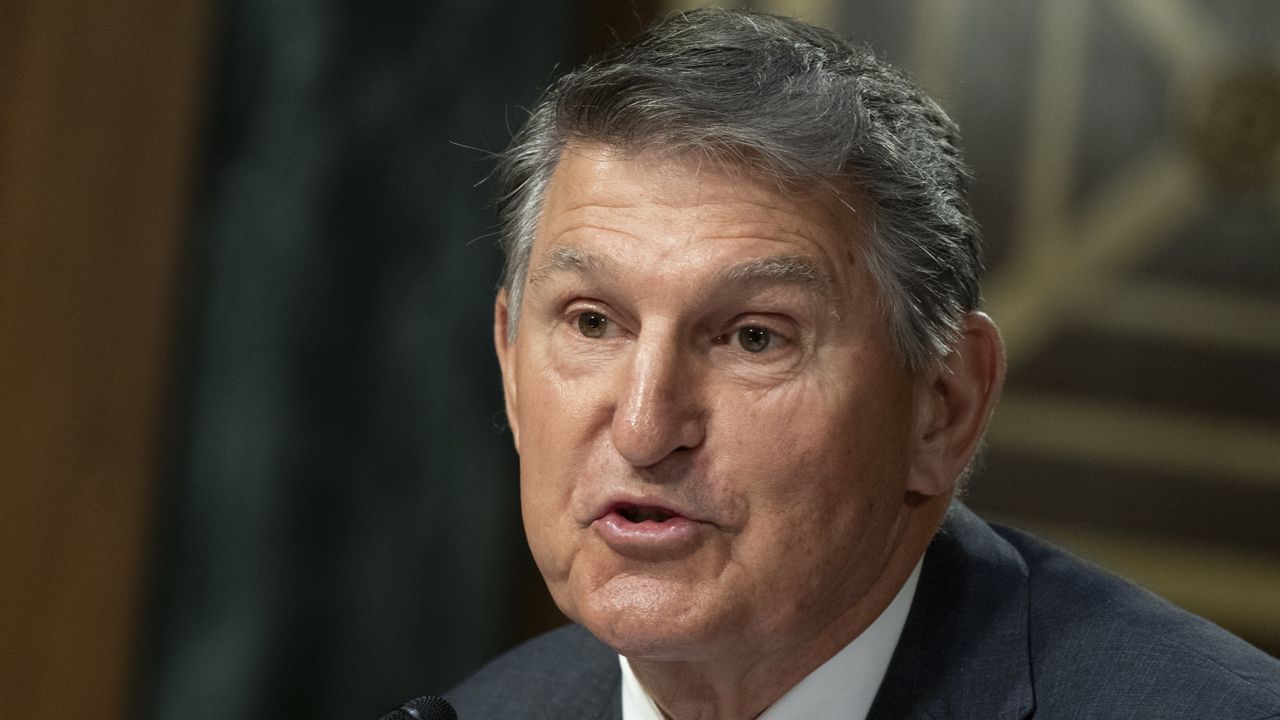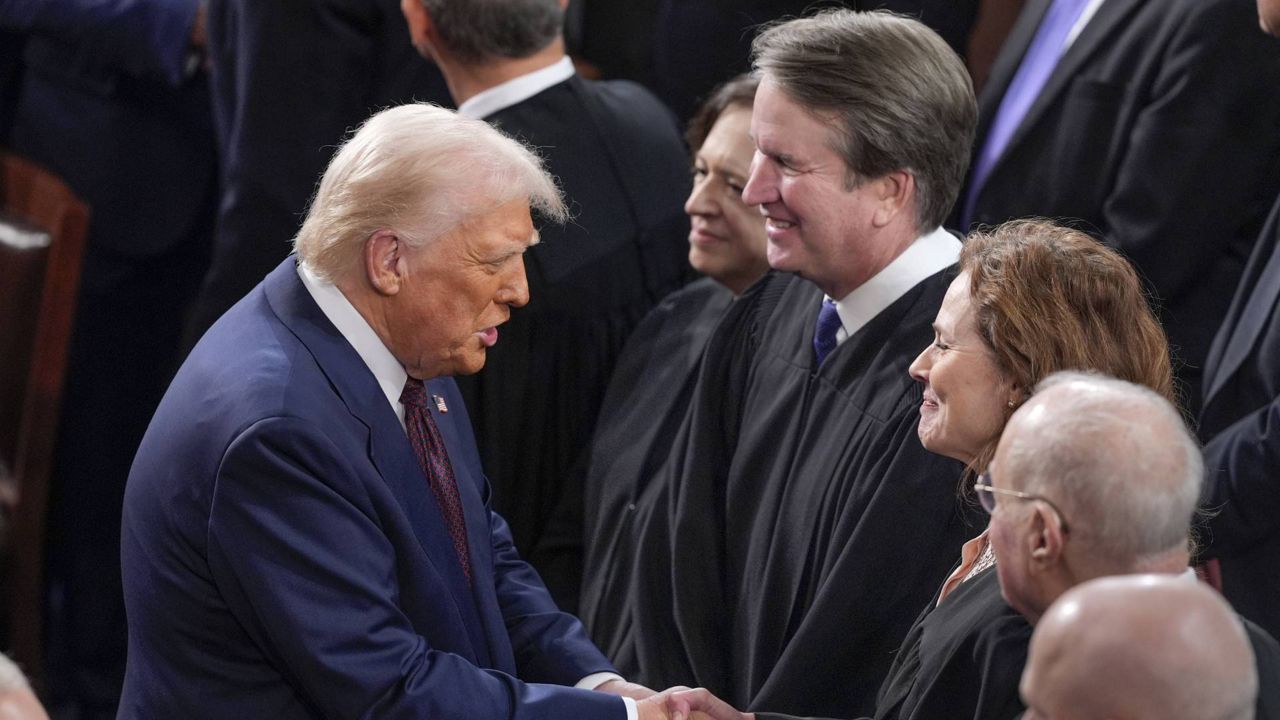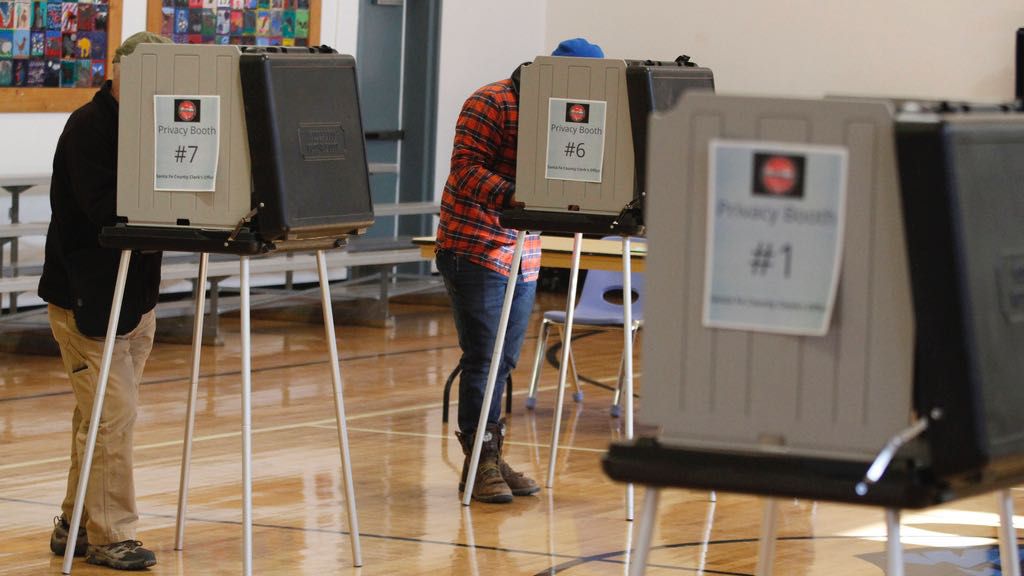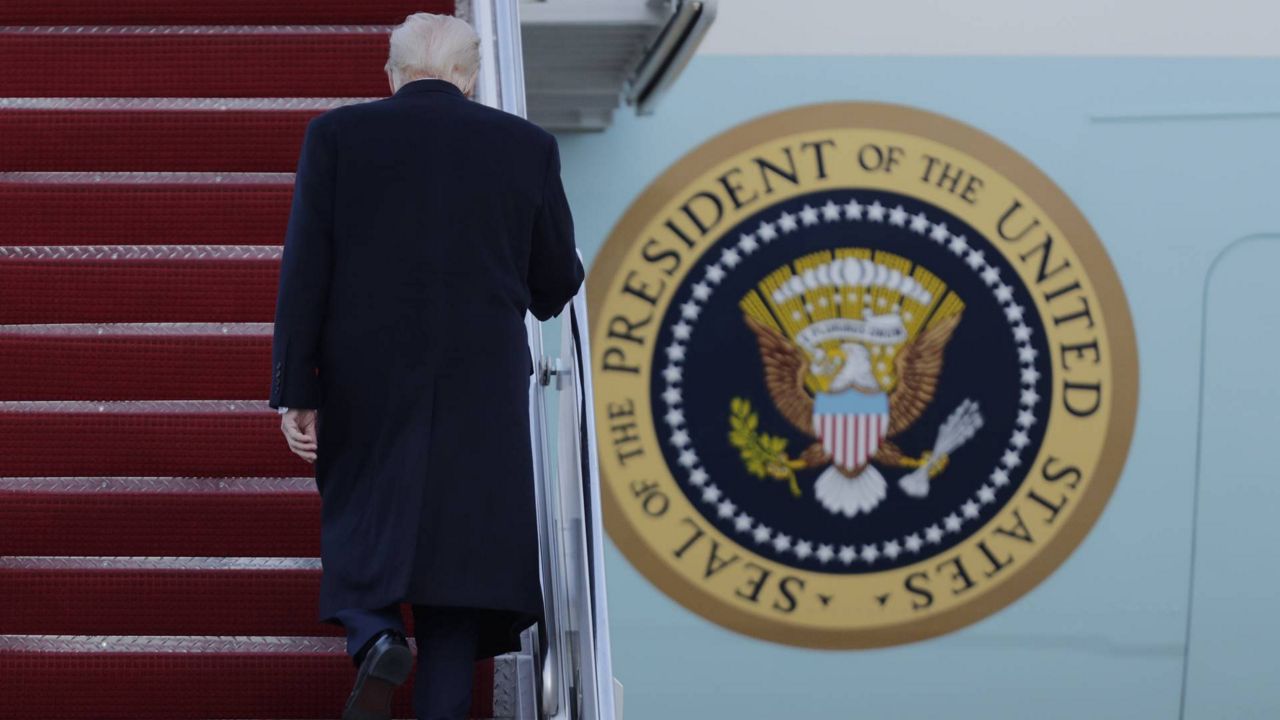Polls are finding there is a sizable appetite for a third-party presidential candidate in 2024, but will a formidable ticket emerge?
What You Need To Know
- Polls are finding there is a sizable appetite for a third-party presidential candidate in 2024, but will a formidable ticket emerge?
- A Quinnipiac University poll published Wednesday found that 47% of voters say they would consider voting for a third-party candidate
- And according to a Monmouth University poll Thursday, three in 10 Americans said they’d entertain supporting a “fusion” ticket comprised of a Democrat and Republican
- Both polls point to a distaste among many voters for Democratic incumbent Joe Biden and Republican former President Donald Trump
A Quinnipiac University poll published Wednesday found that 47% of voters say they would consider voting for a third-party candidate. And according to a Monmouth University poll Thursday, three in 10 Americans said they’d entertain supporting a “fusion” ticket comprised of a Democrat and Republican.
Both polls point to a distaste among many voters for Democratic incumbent Joe Biden and Republican former President Donald Trump, who are the clear front-runners for their parties’ nominations.
In a hypothetical rematch between Biden and Trump, the majority of people surveyed by Monmouth said they would vote for neither. Forty-five percent said they definitely would not vote for Biden, while 7% said they probably would not vote for him. Forty-six percent said they definitely would not support Trump; 8% said they probably would not.
“With neither President Biden nor former President Trump knocking it out of the park on favorability, almost half of the country would consider another option,” said Quinnipiac University Polling Analyst Tim Malloy. “No specific name for the candidate, no specific designation for the party, but it is a vivid indication that for many voters, the status quo is a no-go.”
However, Patrick Murray, director of the Monmouth University Polling Institute, said there “may be an opening for a third party in 2024, but when you drill down further, there doesn’t seem to be enough defectors to make that a viable option.”
The bipartisan, centrist group No Labels has said it’s working to nominate an independent presidential candidate in 2024. On Monday, it hosted a town hall in New Hampshire featuring Sen. Joe Manchin, D-W.Va., and former Utah Gov. Jon Huntsman, a Republican.
Manchin and Huntsman did not rule out forming a ticket for 2024.
But Monmouth’s poll found that voters prefer the general idea of a third-party fusion ticket over a potential Manchin-Hunstman ticket regardless of which man’s name was listed on top.
Thirty percent of voters said they’d support a generic third-party fusion ticket, but when asked specifically about Manchin and Huntsman, just 16% said they’d definitely or probably vote for them.
“We are still very much in the realm of hypotheticals, where voters’ assessment of their actual behavior can be unreliable,” Murray said. “However, the more concrete you make an alternative to the major party candidates, the less attractive it becomes. A third-party nominee needs to capture voters’ imagination to be successful. It is not clear that such a charismatic figure exists right now.”
A strong third-party candidate could potentially impact the outcome of an election by siphoning votes from a major-party candidate. Some Democrats have expressed concerns that a No Labels candidate could pave an easier path for Trump to return to the White House.
But the polls found Republican voters are slightly more receptive to supporting a third-party choice than Democrats.
A quarter of GOP voters told Monmouth they were inclined to support a generic fusion ticket, compared to 18% of Democrats.
In the Quinnipiac poll, 61% of Democratic voters ruled out voting for a third-party candidate, compared to 57% of Republicans. Nearly two out of three independents (64%), meanwhile, said they’d consider supporting a third-party choice.
Monmouth found that the presence of a third party in the race would cost both major-party nominees votes, but it’s not apparent it would change the winner.
There also has been speculation that Robert F. Kennedy Jr. could drop out of the Democratic primary and run as an independent and that former Maryland Gov. Larry Hogan, a Republican who is national co-chairman of No Labels, could join the race.
Hogan, who previously ruled out running as a Republican, made a case Friday for a third-party candidate.
“An overwhelming majority of Americans are looking for something else,” Hogan said on “CNN This Morning.” “And so, when given the choice between Donald Trump, Joe Biden or neither, most Americans pick neither.”








